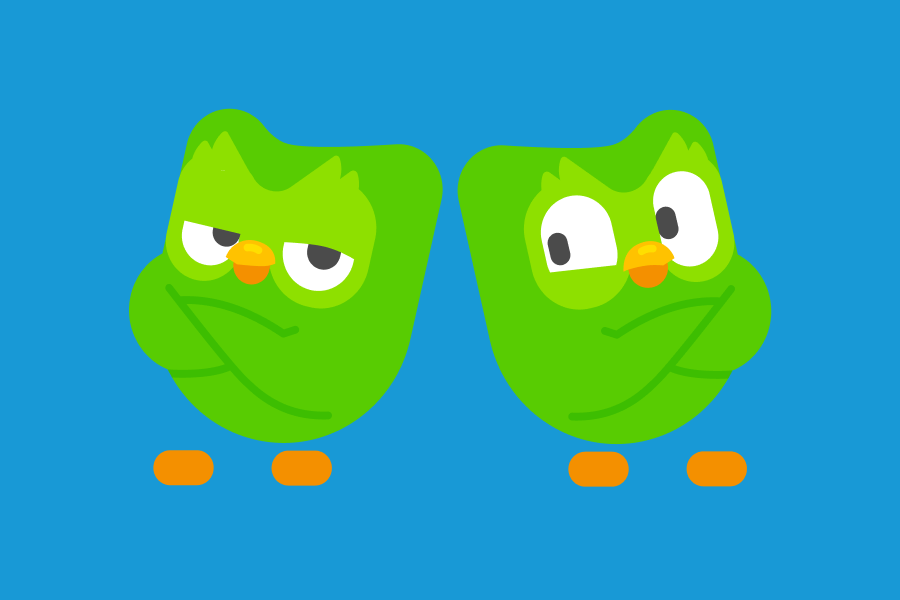Verlan is your golden ticket to French slang: It's a whole system of slang where syllables in a word are swapped to create a new, often playful, term. The word verlan itself was created by swapping the syllables of l’envers, which means "the reverse"—so the syllables in l’en-vers switch places and become ver-lan.
Here are five common syllable-flipping verlan words you might hear in France!
1. femme (woman) → meuf
When someone says the word meuf, they're using the verlan version of femme—a word that means "woman" or, in some contexts, "girlfriend."
| C'est qui c'te meuf ? | Who's that woman? |
| Elle est où ta meuf ? | Where's your girlfriend? |
💡 Pro tip: While meuf can be used informally among friends, it’s best to gauge the familiarity and context of a situation before using this word to avoid sounding overly casual or even disrespectful.
2. lourd (annoying) → relou
If you hear someone describing a person or situation as relou, they're using the verlan form of lourd to mean "annoying."
| Elle est trop relou c'te meuf ! | That woman is so annoying! |
| C'est un gros relou ! | He's so annoying! |
| C'est relou qu'ils soient pas venus. | It sucks that they didn't come. |
💡 For extra emphasis, you can say trop relou to describe something or someone that's very annoying. (In casual, spoken French, you can use trop to modify any adjective.)
3. bizarre (strange) → zarbi
When someone says something is zarbi, they are using the verlan form of bizarre meaning “strange, unusual.”
| Moi, j'le trouve zarbi. | I think he's weird. |
| Avoue qu'c'est zarbi quand même. | You've gotta admit it's weird. |
💡 You might also hear zarbe, which is short for zarbi.
4. louche (suspicious) → chelou
If a person is chelou, it means they’re shady or suspicious. You can also use chelou to describe things or situations.
| Comme il est chelou ! | He's so shady! |
| C'est vraiment chelou c't'histoire. | That story is really shady. |
5. fou (crazy) → ouf
When you hear someone calling another person ouf, they're using the verlan form of fou to describe someone as crazy or wild.
| T'es un vrai ouf, toi ! | You're nuts! |
To express agreement, you can say de ouf which means "totally" or "for real."
| Comme il a changé ! -Mais de ouf ! |
He's changed so much! -Totally! |
Le verlan, c’est trop ouf !
Verlan is a playful and dynamic aspect of the French language that keeps it interesting and lively. Next time you hear a French speaker using one of these words either in real life or in a movie, podcast, song, etc., you'll know exactly what it means! 🎉



